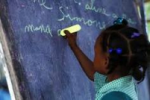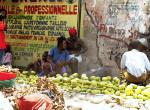Development Debacles: Book Review of “Travesty in Haiti”
 Travesty in Haiti: A True Account of Christian Missions, Orphanages, Fraud, Food Aid and Drug Trafficking” is not a new book, having been published in 2008. However, it should be required reading for volunteers, missionaries and development workers interested in Haiti. Drawing from his experiences as an anthropologist and consultant in the northwest, he describes how NGOs in the region caused serious harm in the name of development. Schwartz is frustrated but not anti development – he is against dependency, corruption, and disempowering the people we say we want to help. You can read a preview and/or purchase his book on Amazon. A few thoughts below.
Travesty in Haiti: A True Account of Christian Missions, Orphanages, Fraud, Food Aid and Drug Trafficking” is not a new book, having been published in 2008. However, it should be required reading for volunteers, missionaries and development workers interested in Haiti. Drawing from his experiences as an anthropologist and consultant in the northwest, he describes how NGOs in the region caused serious harm in the name of development. Schwartz is frustrated but not anti development – he is against dependency, corruption, and disempowering the people we say we want to help. You can read a preview and/or purchase his book on Amazon. A few thoughts below.


